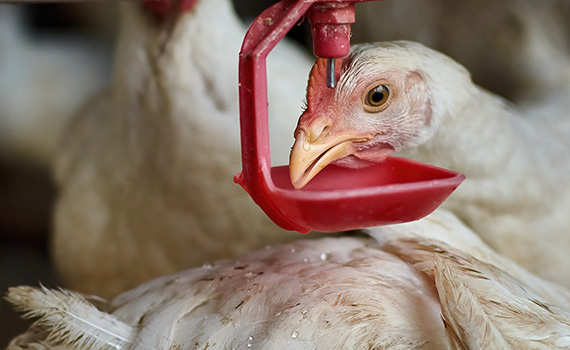On-site PCR testing could aid smart antibiotic use in mycoplasmosis treatment
Timely use of polymerase chain reaction (PCR) testing on chicken farms can help tackle the problem of antibiotic overuse against mycoplasmosis in countries where this treatment approach is prevalent — which in turn may guard against antimicrobial resistance.
That’s the view taken by Keat Fu, DVM , technical manager from Aviagen, who examined evidence from two research case studies.
Quick detection — different outcomes
The study used PCR testing on two farms, in Pakistan and the Philippines. In both cases, pathogenic Mycoplasma bacteria was detected at day of age using a trachea swab from chickens randomly selected, Fu explained, suggesting vertical transmission from parent stock.
Different treatments were then applied, he said. In Pakistan, insufficient tilmicosin was used in drinking water for 3 days, and signs of resistance were observed after the use of several antibiotics. In the Philippines, a treatment of sufficient doxycycline in feed was applied, and PCR tests were negative from day 7 to day 28, before harvesting.
Guiding appropriate treatment
Using an on-site PCR detection system can play a key role in “next generation mycoplasmosis control,” Fu and his team explained, writing in Proceedings of the Seventieth Western Conference Disease Conference.
“PCR can be a good candidate to help the optimization of antibiotics usage. Instead of time-consuming cultures, PCR provides the possibility for timely detection of Mycoplasma,” they said.
Early detection is highly useful, the authors explained, as although there are vaccines available against mycoplasmosis in parent stock in some countries, it only prevents the most severe symptoms and does not guarantee that birds are free of infection.
“Once we get positive results, chickens can be treated with antibiotics precisely and immediately, with scientific evidence. PCR can also be a good tool for treatment evaluation,” they continued.
Such precise treatment can reduce antibiotic use overall, which not only reduces the public health threat of antimicrobial resistance, but also reduces costs — adding value for both veterinarians and producers, Fu added.
Posted on April 26, 2022

















